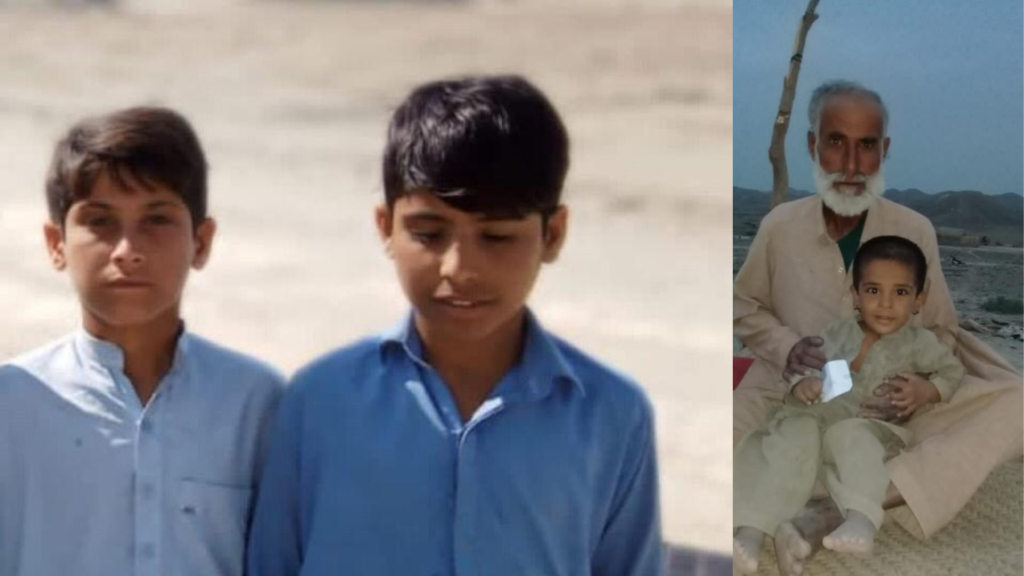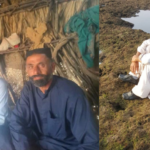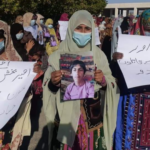Family Disappeared:
On December 3, 2020, army officials stopped two local transport vehicles at Syahdam checkpost in Gichk area of district Panjgur and detained the passengers of both the vehicles. Later, the rest were released except for Dur Mohammad Hassan, his wife Bibi Mariyum and three grandchildren Rashid Awaz, Ajmal Shah Jan and Samani Shah Jan. It’s worthing noting that there were some reports on social media of their release but our investigation has revealed that those reports are inaccurate and the family is still missing.
According to the details, on December 3, Dur Mohammad hired Nazeer Umeet, a local transporter who travels to Panjgur city every day carrying passengers back and forth, to buy household items. He was accompanied by his wife, Bibi Maryum, and three of his grandchildren Rashid Awaz, Ajmal Shah Jan and Samani Shah Jan. Rashid and Ajmal are students in Kohda Yousuf School in Turbat, the headquarter of the neighboring district Kech and were visiting their grandparents during their vacations.
While returning back, the army officials stopped the vehicle at the Syahdam checkpost and detained all the passengers including Dur Mohammad’s family. They were taken to a nearby building which once served as Syahdam High School Gichk. In 2017, the Frontier Corps, a paramilitary force, suspended the classes and turned the building into a part of its checkpost. Six months ago, regular army replaced the Frontier Corps and since then Gichk has been witnessing army operations, enforced disappearances and the wrath of army officials on daily basis.
Later that day, Dur Mohammad and other passengers were released except for his wife and grandchildren. The next day, he gathered the elders of his village and visited an army favorite local man Ghulam Sarwar who runs a death squad in the area on the behest of the army. Ghulam Sarwar took Dur Mohammad to the checkpost at Syahdam and since then no one has heard of Dur Mohammad either.
Two brothers killed:
Meanwhile, the Baloch National Movement, a political party, published the video of two brothers Waju and Shoaib sons of Mohammad Umer who were killed on October 31, 2020. Both are pastoral nomads and lived mostly in the mountains with their livestock.
According to the details, the army accompanied by local death squad members carried out an operation at Zahmado area of Mashkay district Awaran on October 31. The personnel shot dead both the brothers, took away their livestock leaving behind the bodies. The bodies were later recovered by the people of the area and were buried by them.
Due to a heavy presence of the army in the area and blockage of other means of communication, the area is inaccessible and even harder to get information from.
Both the brothers were nephews of Mir Saho. In 2012, the army bombed Saho’s house which left eight members of his family dead while twelve others were critically injured. The deceased included Mir Saho’s newly born grand daughter Bakhti. Earlier this year on March 2, the security forces raided the house of Rahim Bakhsh, another relative of Mir Saho, and forcibly disappeared him and his wife Bibi Zargul. Bibi Zargul was later thrown near the house in a critical condition after being tortured. She succumbed to the injuries and died later that day while Rahim Bakhsh is still listed as missing.


